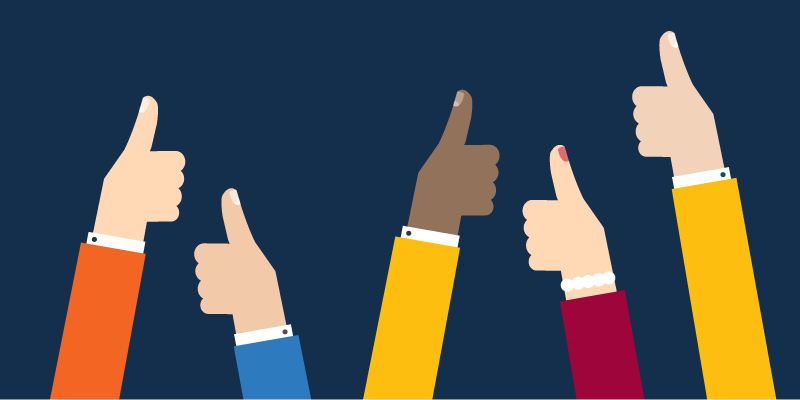Workplace ethics are a dynamic set of values that vary with people and their definition of a workplace. For some, it is a physical office they go to every day, while others, their home office. Workplace ethics refers to the way employees in an organization govern themselves and their overall work attitude, but it can also refer to the morality, or lack thereof, permeating a workplace.
The way a company operates and is perceived by both the public and competitors often comes down to the workplace ethics. A truly ethical workplace should model ethical behavior from the top down, and from the inside out. Workplace ethics are reflected in how organizations treat their suppliers and customers, how they interact with others, how they perform their tasks, and how they communicate both internally and externally.
What are Workplace Ethics?
Workplace ethics, also referred to as business ethics, describes the ethical dimensions of organizations and company activities. The term encompasses nearly every issue that may arise in a business, including production, distribution, marketing, sale, and consumption of the goods and services being offered.
In a 2018 survey of ethics in the U.S. workplace conducted by the Ethics & Compliance Institute (ECI), 47% of respondents had personally observed conduct that violated either the law or organizational ethics standards. When discussing workplace ethics, a good way to understand its detriments involves looking at the ways in which businesses have displayed and promoted negative behaviors in the past. In the Global Business Ethics Survey of 2019, misconduct was shown to manifest in several different negative ways. Some of the findings included can be viewed here.
At its core, workplace ethics boils down to moral philosophy. It is framed by how an individual or company’s morality influences the decisions made and the behaviors exhibited. It is important to recognize the distinction between what is law and what is ethical. It is possible for a behavior to technically be legal, while still being considered unethical.
The Role of Workplace Ethics
Advertisment
Ethical lapses of any kind have the tendency to snowball in a work environment. Once employees see others breaking the rules without repercussions, they may start to think it’s excusable for them to do so as well. It sends the message that not only will the behavior go unaddressed, it communicates that it’s acceptable. Worse case, they may view the company in a negative light and choose to leave. Essentially, a culture where misconduct is tolerated could result in higher turnover, lower productivity, and ultimately, a diminished reputation and profitability.
An organization that does not consistently combat unethical behaviors will always suffer, even if the wrongdoings in question aren’t considered to be major by most people’s judgment. Unethical behavior that goes on without being reprimanded undermines the moral fabric of an organization, leading to larger problems than the unethical issue in question.
Workplace Ethics in Action
Workplace ethics can be divided into two larger areas of effort: how an employee governs themselves within the workplace, and how the organization conducts itself both internally and externally (how ethics are at play in the corporate culture). Both have a tremendous effect on employee morale, performance, loyalty, job turnover, and work ethic itself.
The Role of Work Ethic
Managerial style can work to improve an employee’s work ethic by establishing systems and habits for accomplishing tasks efficiently and interacting effectively in the workplace. By inspiring and even rewarding ethical behavior in the individual efforts of employees, an organization can ensure that ethical conduct permeates all levels of the organization and reaches the public’s perception of the company.
The 8 central characteristics of strong employee work ethic are:
- Punctuality: completing projects when due, showing up on time, following break-time protocol, and informing supervisors of challenges in a timely manner are all efforts that respect the value of time in the workplace.
Workplace ethics are a dynamic set of values that vary with people and their definition of a workplace. For some, it is a physical office they go to every day, while others, their home office. Workplace ethics refers to the way employees in an organization govern themselves and their overall work attitude, but it can also refer to the morality, or lack thereof, permeating a workplace.
The way a company operates and is perceived by both the public and competitors often comes down to the workplace ethics. A truly ethical workplace should model ethical behavior from the top down, and from the inside out. Workplace ethics are reflected in how organizations treat their suppliers and customers, how they interact with others, how they perform their tasks, and how they communicate both internally and externally.
What are Workplace Ethics?
Workplace ethics, also referred to as business ethics, describes the ethical dimensions of organizations and company activities. The term encompasses nearly every issue that may arise in a business, including production, distribution, marketing, sale, and consumption of the goods and services being offered.
In a 2018 survey of ethics in the U.S. workplace conducted by the Ethics & Compliance Institute (ECI), 47% of respondents had personally observed conduct that violated either the law or organizational ethics standards. When discussing workplace ethics, a good way to understand its detriments involves looking at the ways in which businesses have displayed and promoted negative behaviors in the past. In the Global Business Ethics Survey of 2019, misconduct was shown to manifest in several different negative ways. Some of the findings included can be viewed here.
At its core, workplace ethics boils down to moral philosophy. It is framed by how an individual or company’s morality influences the decisions made and the behaviors exhibited. It is important to recognize the distinction between what is law and what is ethical. It is possible for a behavior to technically be legal, while still being considered unethical.
The Role of Workplace Ethics
Ethical lapses of any kind have the tendency to snowball in a work environment. Once employees see others breaking the rules without repercussions, they may start to think it’s excusable for them to do so as well. It sends the message that not only will the behavior go unaddressed, it communicates that it’s acceptable. Worse case, they may view the company in a negative light and choose to leave. Essentially, a culture where misconduct is tolerated could result in higher turnover, lower productivity, and ultimately, a diminished reputation and profitability.
An organization that does not consistently combat unethical behaviors will always suffer, even if the wrongdoings in question aren’t considered to be major by most people’s judgment. Unethical behavior that goes on without being reprimanded undermines the moral fabric of an organization, leading to larger problems than the unethical issue in question.
Workplace Ethics in Action
Workplace ethics can be divided into two larger areas of effort: how an employee governs themselves within the workplace, and how the organization conducts itself both internally and externally (how ethics are at play in the corporate culture). Both have a tremendous effect on employee morale, performance, loyalty, job turnover, and work ethic itself.
The Role of Work Ethic
Managerial style can work to improve an employee’s work ethic by establishing systems and habits for accomplishing tasks efficiently and interacting effectively in the workplace. By inspiring and even rewarding ethical behavior in the individual efforts of employees, an organization can ensure that ethical conduct permeates all levels of the organization and reaches the public’s perception of the company.
The 8 central characteristics of strong employee work ethic are:
- Punctuality: completing projects when due, showing up on time, following break-time protocol, and informing supervisors of challenges in a timely manner are all efforts that respect the value of time in the workplace.

